Discover how AI tools can streamline your legal practice! Step into the future of law with the power of AI. These AI tools for lawyers are changing the way legal work gets done. Our team at Comrade Digital Marketing Agency, specialists in digital marketing for law firms, is ready to help you navigate these changes.
While exploring how AI tools free legal professionals from tedious work, trust Comrade Digital Marketing to be your partner. We’ll ensure your legal practice uses the latest technology and maintains a strong online presence to attract more clients. Find out how AI, using machine learning and natural language processing, can optimize your document review process and boost efficiency with specialized legal AI tools.
Let’s explore how AI is rewriting the rules, allowing lawyers to focus on what truly matters – serving clients.
If you’re eager to explore the full potential of AI-driven marketing for your law firm, remember that Comrade Digital Marketing is your go-to partner for steering your online presence to success.
25 Best AI Legal Tools in 2025
Explore the cutting-edge AI legal tools revolutionizing legal practices, offering efficiency, accuracy, and advanced analytics for legal professionals.
1. Legal Robot
In the AI landscape of 2025, LegalRobot emerges as a star player. A standout feature is its contract review capabilities. This AI platform efficiently analyzes intricate contracts, spotting potential pitfalls and suggesting better terms. Collaborative legal work is a breeze thanks to its user-friendly interface.

LegalRobot’s real-time risk assessment gives businesses an edge in negotiations. The legal AI tool can also effortlessly write legal briefs, sparing you the daunting task of starting from scratch. Whether you want to draft legal documents or ensure regulatory compliance, LegalRobot’s versatility empowers your legal team.
2. CoCounsel
Amidst the bustling legal scene of 2025, CoCounsel stands out by uniting artificial intelligence with human insight. This dynamic tool pairs attorneys with AI algorithms, forming a dream team for unparalleled legal research.
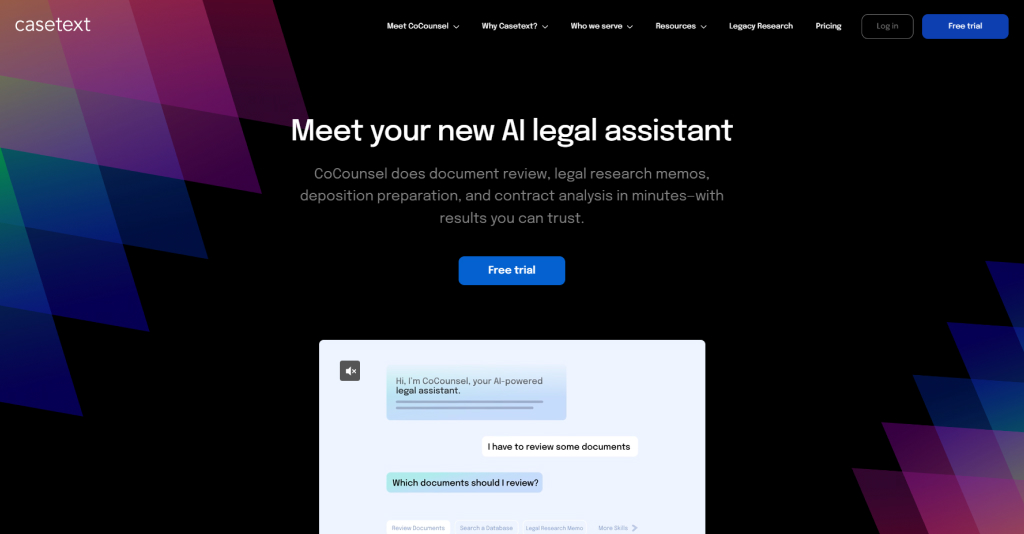
Imagine having a virtual colleague skilled in relevant case law and statutes—the CoCounsel chatbot interface delivers just that. It aids in crafting legal arguments, identifying precedents, and even forecasting potential outcomes through data analysis.
CoCounsel’s magic lies in personalized learning. As attorneys interact, the artificial intelligence adapts, refining its suggestions over time. This blend of technology and human acumen solidifies CoCounsel as a go-to choice.
3. CS Disco
CSDisco reigns as a comprehensive eDiscovery solution. Its strength? Lightning-fast legal data processing. With legal cases drowning in digital information, CSDisco’s advanced algorithms swiftly sort through routine tasks, legal documents, emails, and more, pinpointing key evidence with precision.
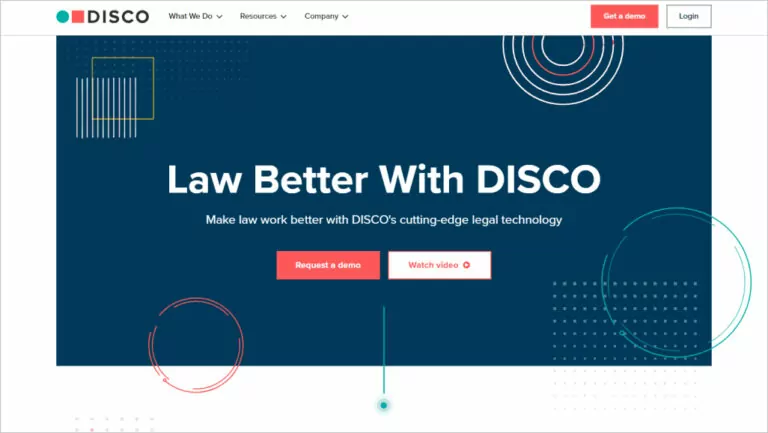
Its visual analytics transform complex data into intuitive graphs and charts, understandable even to non-tech stakeholders. CSDisco’s cross-border support is a boon for international cases.
4. DoNotPay
Simplifying legal complexities is easy with DoNotPay in 2025. This standout tool boasts a user-friendly approach that shatters barriers. Free from legal jargon and baffling interfaces, DoNotPay communicates in plain language. Its AI-powered chatbot acts as a virtual legal advisor, expertly guiding users through diverse legal tasks, from contesting parking tickets to crafting complex legal documents.

What truly makes DoNotPay shine is its unwavering commitment to accessible justice. By helping users navigate obstacles that might otherwise deter them due to financial concerns, DoNotPay underscores the essence of approachability and affordability. As a marketing tool, DoNotPay’s ethos resonates profoundly, rendering it an invaluable asset for legal teams to explore.
5. Harvey AI
In the realm of AI-driven legal tools for 2025, Harvey AI stands out for its predictive abilities. This tool is engineered to dissect extensive legal databases, delve into case histories, and analyze legal trends to provide well-informed predictions about case trajectories.

Harvey AI’s knack for detecting early warning signs and suggesting risk-mitigation strategies has the power to revolutionize internal procedures. It’s not confined to reactive legal actions – Harvey AI empowers proactive decision-making by leveraging data-driven insights, a feature that marketers can spotlight as a distinctive advantage.
6. Lex Machina
What truly distinguishes Lex Machina is its ability to generate actionable insights by crunching colossal volumes of case data. Employing AI to dissect court records, decode judge behavior, evaluate attorney performance, and more, Lex Machina empowers legal departments to make informed choices about case strategies, potential settlements, and timelines.

It’s not merely about sifting through legal information – Lex Machina transforms figures into visualizations that illuminate pivotal trends. The tool’s competitive intelligence goes beyond internal operations; it becomes a formidable marketing asset, showcasing your aptitude for approaching cases with data-backed strategies.
7. Latch
Latch specializes in contract analysis, letting you say goodbye to the laborious manual review process. With its AI engine, Latch swiftly deciphers contracts, flagging vital terms and potential risks quickly.

Latch goes beyond mere red flags, offering intelligent suggestions to enhance contract terms. From standardizing clauses to ensuring compliance, Latch is all about efficiency. As a marketing tool, Latch doesn’t just promise streamlined contract management; it embodies your firm’s dedication to precision, setting you apart in a sea of legal services.
8. Blue J L&E
Blue J L&E thrives on predictive analytics. By diving deep into historical case data and legal nuances, it predicts litigation outcomes and gauges risks with uncanny precision. But it doesn’t stop at predictions, it explains each forecast in plain language, empowering legal teams to make savvy choices.
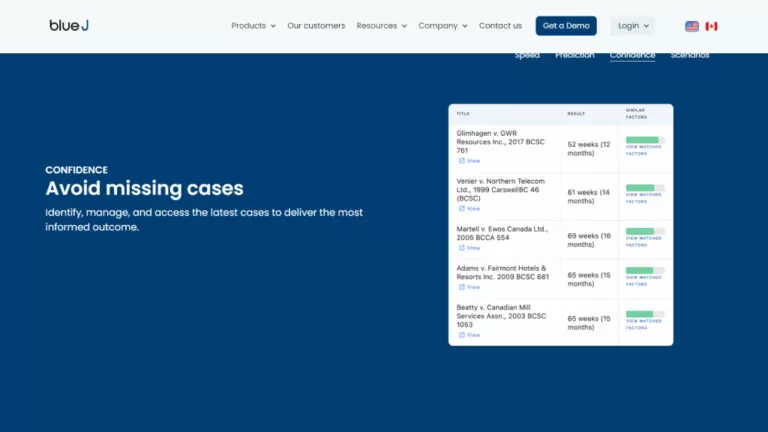
Blue J L&E’s secret is transparency, simplifying intricate legal concepts into actionable insights. As a marketing and internal process tool, it positions your firm as a well in employment law.
9. Westlaw Edge
No more slogging through endless cases—Westlaw Edge’s algorithms spotlight key passages and deliver pertinent insights to bolster your legal arguments. Its “Quick Check” feature validates legal citations and gauges the robustness of your legal positions in real-time.
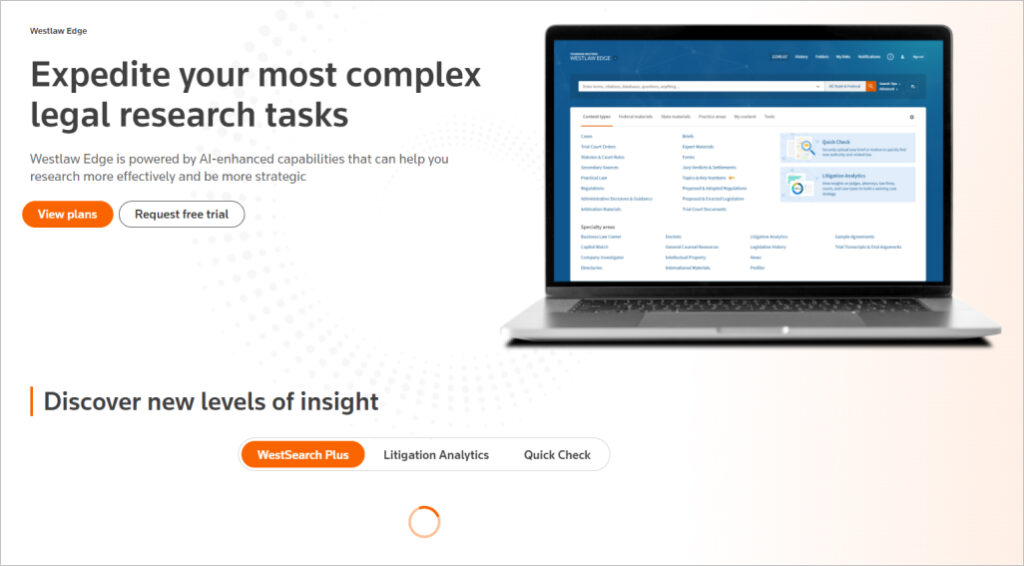
Its predictive analytics envision the trajectory of cases. As a marketing tool, Westlaw Edge showcases your firm’s adeptness in harnessing cutting-edge technology, offering clients a data-infused and future-focused strategy to tackle their legal dilemmas.
10. OneLaw.ai
In the dynamic legal tech landscape of 2025, OneLaw.ai emerges as a standout player with its comprehensive approach to contract management. Notably, it features an AI-driven contract lifecycle management platform. Picture having a virtual guide that accompanies you from contract inception to renewal. What truly sets OneLaw.ai apart is its ingenious intelligent clause suggestion capability.
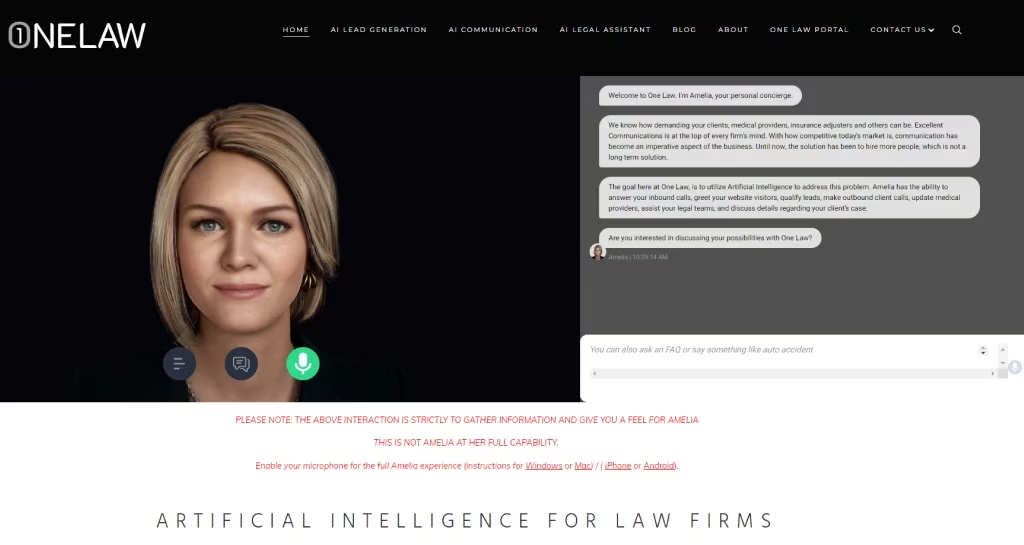
During the drafting process, it not only anticipates missing clauses but also tailors them to the specific contract type and your preferences. Collaboration is simple thanks to its real-time editing and commenting features. For marketers, the appeal of OneLaw.ai lies in its commitment to streamlined contract processes.
11. ChatGPT
We’ve all used ChatGPT by now. What distinguishes ChatGPT is its unparalleled natural language processing and generation capabilities. It doesn’t simply regurgitate pre-programmed responses; instead, it engages in dynamic conversations, providing swift answers to legal inquiries.

Whether you’re a legal professional seeking instant information or a marketer aiming to engage clients, ChatGPT’s conversational style can make a huge difference. Its adaptive learning mechanism ensures constant improvement, making it an indispensable asset for both internal knowledge-sharing and client interactions.
12. Bigle Legal
Bigle Legal is an AI-powered document analysis platform. Its standout attribute is document comprehension, which allows you to feed a stack of documents and receive a concise breakdown of pivotal points and insights.
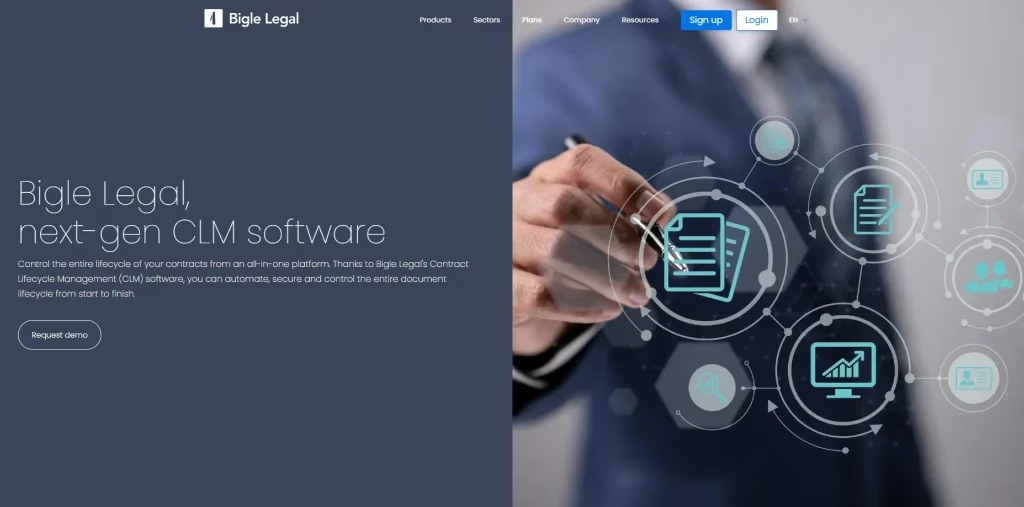
Bigle Legal also has sentiment analysis, which gauges the emotional tone of contracts, aiding in identifying potential areas of concern. This feature is vital during negotiations, enabling you to address not only technicalities but also underlying emotions.
As a marketing instrument, Bigle Legal underscores your firm’s ability to read between the lines, emphasizing a holistic approach to legal practice. And when it comes to showcasing all these innovative legal tech tools, you can rely on Comrade Digital Marketing, our digital marketing agency that specializes in providing top-notch services for law firms.
Stay ahead of the competition with cutting-edge digital marketing for law firms. Check our expert insights.
13. Casetext
Casetext has solidified its presence in the legal tech landscape of 2025 through its innovative legal research solutions. Its power is in its search functionality.

Gone are the days of sifting through endless case law—Casetext’s CARA AI understands your legal query, presenting relevant cases and statutes in a digestible format. The “SmartCite” feature ensures precise and up-to-date citations, streamlining legal research.
Functioning as both a research and marketing tool, Casetext embodies your firm’s commitment to advanced methodologies. Externally, it promises clients meticulous legal research; internally, it enhances your team’s efficiency, granting more time for strategic insights.
14. Diligen
In the sphere of contract review, Diligen is a leader. Its AI-driven contract analysis platform is a standout, automating the extraction of key terms and provisions from uploaded contracts to review contracts easily.

Diligen’s true genius is in its learning capacity. With each contract review, it evolves, adapting to your nuances. This innovation transforms internal processes, automating contract review and freeing your legal team for higher-level analysis.
As a marketing tool, Diligen highlights your firm’s dedication to modernity and effectiveness, assuring clients of a streamlined approach to contract management.
15. Ghostwriter Legal
Ghostwriter Legal elevates content creation using AI-backed innovation. Whether you need contracts, briefs, or legal memos, Ghostwriter Legal offers valuable legal assistance.

What truly sets Ghostwriter Legal apart is its adaptability. Providing basic details enables the AI to tailor documents based on jurisdiction, case law, and style preferences. This expedites drafting and ensures precision. Externally, Ghostwriter Legal exemplifies your firm’s ability to deliver quality legal documents efficiently. Internally, it’s akin to having a versatile, skilled ghostwriter, elevating your firm’s capabilities.
16. LeGAI
LeGAI has a sharp focus on predictive analytics for litigation outcomes. By delving into extensive historical case data, LeGAI evaluates judges’ tendencies and influential factors in rulings.
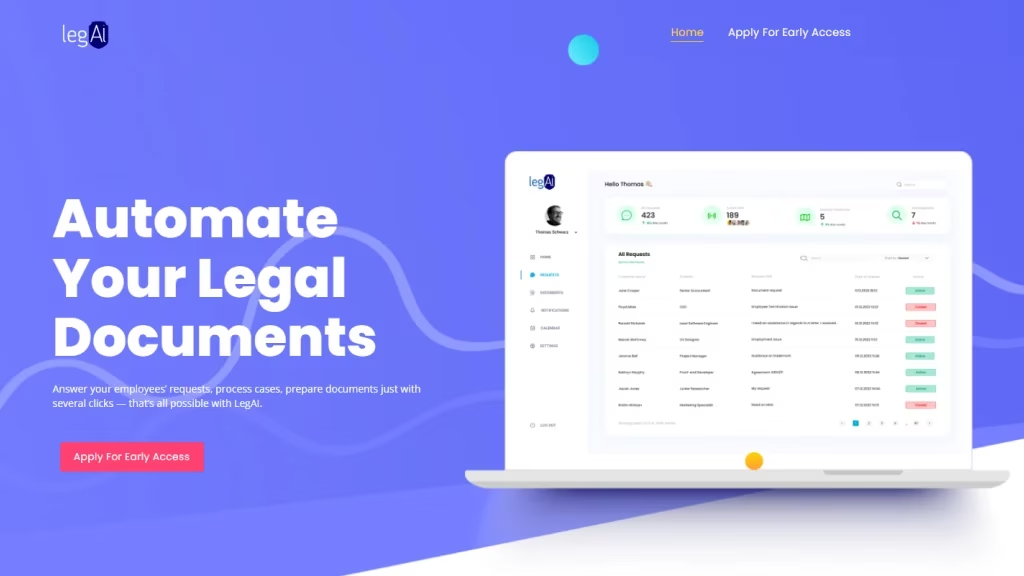
LeGAI’s success lies in its user-friendly interface that transforms intricate data into actionable insights. It’s not just about foreseeing outcomes – LeGAI empowers legal teams to strategize effectively by highlighting case strengths and vulnerabilities.
17. Auto-GPT

With its standout feature being natural language generation, Auto-GPT transforms factual inputs into eloquent legal prose. But the real brilliance lies in its adaptability – it flawlessly mimics diverse legal styles, from contracts to pleadings. The generative AI tool isn’t just a time-saver; it’s your creative collaborator. As a marketing tool, it showcases your firm’s ability to craft polished documents efficiently. Internally, Auto-GPT joins your writing team, elevating your content creation capabilities.
18. LawGeex
LawGeex is known in the legal industry for its contract review automation, utilizing AI assistant to analyze contracts against predefined policies, catching inconsistencies, and suggesting revisions.

LawGeex has exceptional adaptive learning capabilities and natural language processing, fine-tuning itself to your firm’s preferences with each review. Notably, the AI-powered platform focuses on compliance, ensuring your contracts align seamlessly with regulatory standards. As a marketing tool, LawGeex spotlights your firm’s precision and dedication to compliance. Internally, it streamlines contract review, freeing your legal team from manual tasks and empowering strategic analysis.
19. PatentPal

With its patent search and analysis capabilities, PatentPal puts an end to the tedious scouring of countless patents. PatentPal’s algorithms use your inquiry to present pertinent patents, accompanied by insightful visualizations. A standout attribute is its patent similarity analysis, illuminating potential infringement risks. PatentPal amplifies your firm’s prowess in intellectual property law, assuring clients of a holistic approach to patent safeguarding.
20. Smith.ai
In the sphere of client communication, 2025 sees Smith.ai redefining engagement through its virtual receptionist. What differentiates it is its AI-driven live chat and phone answering prowess. Smith.ai’s operators engage clients with warmth and professionalism, capturing essential details and relaying crucial messages.

One noteworthy quality is its seamless integration with prominent legal practice management tools, guaranteeing organized and documented client interactions. As a marketing asset, Smith.ai seamlessly extends your brand, ensuring impeccable customer service around the clock. Internally, it streamlines client communication, freeing up your legal team’s time.
21. Gideon

A hallmark feature of this AI tool is its case law analysis for criminal defense. Gideon’s algorithms dive into legal databases, revealing insights into specific judges’ and jurisdictions’ case handling. It also has a “Trial Strategy” module, presenting potential defense tactics grounded in historical case outcomes. Gideon goes beyond legal research, assisting in the construction of robust defense strategies.
22. Legaly
Legaly is a dynamic contract automation platform that’s perfect for document drafting. It has a diverse template library, curated for specific industries and jurisdictions. Whether it’s crafting NDAs or partnership agreements, Legaly has you covered. It also allows for seamless integration of e-signatures, facilitating swift contract execution.
Legaly demonstrates your firm’s focus on accessibility and efficiency, assuring clients a smooth contract journey. Behind the scenes, it streamlines contract creation, enabling your legal team to engage in more strategic pursuits.
23. Amto AI
In the realm of litigation support, Amto AI reigns supreme with its comprehensive eDiscovery platform. What sets it apart is the AI-driven power that navigates through extensive digital data, categorizing documents and pinpointing pivotal evidence with exceptional accuracy.

An impressive feature of Amto AI is its visual analytics, translating intricate data into intuitive charts and graphs, serving case assessment and strategy. It also boasts collaboration capabilities that foster teamwork with real-time updates and annotations.
As a marketing tool, Amto AI underscores your firm’s technological edge in litigation support. Internally, it transforms how your legal team handles massive legal data volumes, ensuring no essential detail slips through the cracks.
24. AI Lawyer
AI Lawyer is your personal legal assistant powered by advanced artificial intelligence. It provides expert guidance and support in navigating legal matters efficiently.

With its robust capabilities in analyzing legal documents, offering personalized advice, and staying updated on relevant laws and regulations, AI Lawyer streamlines your legal processes and empowers you to make informed decisions with confidence.
25. Law Support
Law Support is legal ai software that takes an all-in-one approach that integrates legal calendaring, document management, and client communication tools.
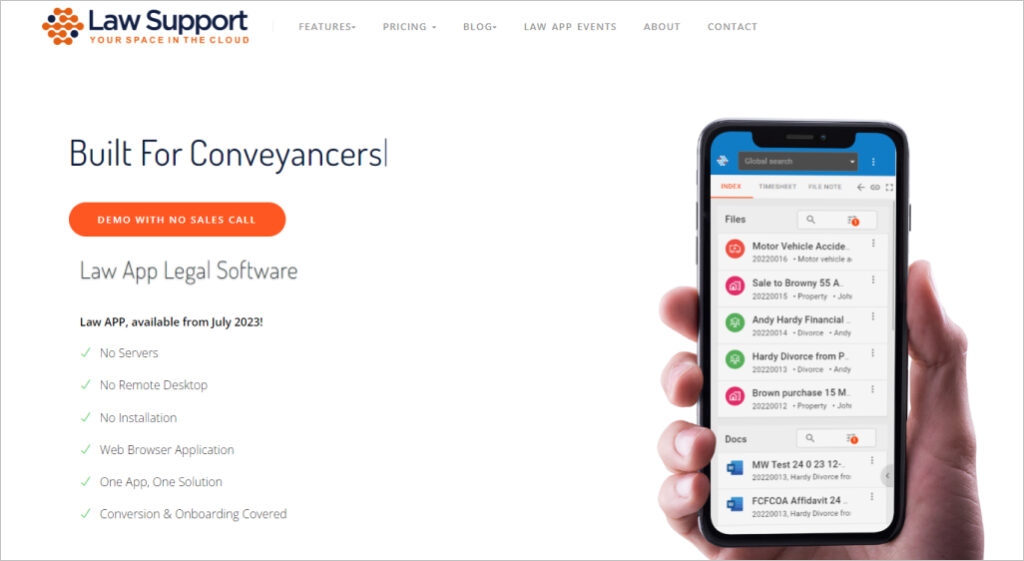
Law Support’s standout features are its AI chatbot, which engages with clients to gather legal information and schedule appointments, and its predictive analytics, which helps manage case timelines and suggests optimal workflows.
Within your organization, it serves as a hub for consolidating practice management, resulting in heightened efficiency for your legal team and an elevated level of client contentment.

Choosing the Perfect Law AI Software
Choosing the perfect AI tools for your law firm is essential for harnessing the transformative power of AI in the legal industry.
- Identify your needs: Start by carefully analyzing your firm’s unique workflow and pinpointing areas where an AI assistant could offer the most significant benefits. Consider whether time-consuming tasks like document review, legal research, or client communication could be streamlined with AI.
- Consider your practice areas: Different legal AI tools specialize in various practice areas. Choose solutions that align with your firm’s core focus.
- Research thoroughly: Explore AI tools built specifically for law firms, often leveraging advanced machine learning algorithms for tasks like contract analysis, case prediction, and even personalized client support.
- Test before you invest: Take advantage of free trials or demos whenever possible to get hands-on experience and ensure the AI tool meets your expectations.
Partnering with reputable legal technology companies specializing in AI ensures you implement reliable solutions that integrate seamlessly with your existing systems and meet the specific demands of your practice.
Benefits of AI Tools for Lawyers
There are quite a few benefits of AI tools for lawyers, including:
- Time: AI tools tackle repetitive tasks like document review, legal research, and contract analysis, freeing up your schedule for high-value work.
- Precision: Law AI software are all about accuracy. They comb through massive amounts of data and other legal contracts and other documents with pinpoint precision, ensuring no crucial details slip through the cracks.
- 24/7 availability: AI assistant doesn’t punch out at 5 p.m. It’s there whenever you need it, working around the clock to review contracts or assist with research, data analysis, and even client inquiries in your legal sector.
- Cost efficiency: Imagine having a helping hand that doesn’t demand a paycheck. Legal AI tools cut down operational costs and optimize resource allocation.
- Data insights: Artificial intelligence doesn’t just crunch numbers; it extracts valuable insights from general legal data, helping you make informed decisions that drive your legal practice forward.
Stay ahead of the curve as a legal professional – dive into the potential of AI for lawyers in 2024 by visiting our blog.
What Can AI Legal Tools Be Used For?
We’ve just described 25 different legal AI tools you can use in your law firm to improve efficiency, streamline your operations, and make your life much much easier. If, however, you didn’t read all that- here is a quick summary of all the things AI can do for you:
- Write legal documents: Drafting legal documents to ensure accuracy and efficiency. The standout tool here is Ghostwriter Legal, which streamlines document creation with ease.
- Read legal documents: Parsing through stacks of documents is simple with AI. It can swiftly extract key information using natural language processing and saving precious time. Diligen is the top pick for this one.
- Conduct legal research: The digital age’s equivalent of searching the library – AI digs up relevant cases, statutes, and regulations easily. Westlaw Edge should be your go-to, as it enhances research efficacy.
- Enhance document management: Keeping track of documents is a cinch with AI. It sorts, categorizes, and manages documents, ensuring no more lost files. CSDisco stands out for this, with exceptionally organized digital document management.
- Contract analysis: AI scrutinizes contracts, highlighting potential risks and deviations. LawGeex is top for precise contract analysis.
- Improve risk assessment: AI lends its predictive powers to assess legal risks, providing data-backed insights to make informed decisions. Blue J L&E takes the spotlight, taking risk assessment to a new level.
With AI-powered tools in your corner, long legal tasks are more efficient, precise, and innovative.
Learn how to identify the top law firm SEO agencies that can deliver results and maximize your ROI.
Are All These Legal AI Tools Worth the Hype?
AI’s buzz is real, and for a good reason. It’s here to transform how you practice law and make your work life better. AI isn’t a fad; it’s streamlining processes, saving you time, and boosting efficiency. Imagine automating the tedious tasks you hate, freeing you to focus on high-value work. AI tools for lawyers tackle everything from document review to legal research, becoming your powerful sidekick. They won’t replace lawyers, but they will enhance your capabilities, helping you sift through data and make informed decisions. AI isn’t just hype; it’s a force reshaping the whole legal profession. Let Comrade Digital Marketing help you navigate this exciting transformation and harness AI for your firm!
Get ahead of the digital marketing trends for 2024! Read our insightful article.
AI Tools for Law Firms: Final Thoughts
Transforming the legal landscape, AI tools have shifted how lawyers are practicing law. These digital companions handle the mundane, allowing legal minds to focus on strategy and creativity. As the legal world evolves, embracing AI isn’t just an option – it’s the future of efficiency.
Unlock your firm’s potential with AI-driven solutions. Embrace streamlined legal research, lightning-fast document drafting, and smarter case predictions.
Ready to harness the power of AI for your law practice? Comrade Digital Marketing, a digital marketing agency dedicated to getting lawyers more clients and greater revenue, can guide you toward a tech-enhanced legal journey. Contact us today to learn more!

